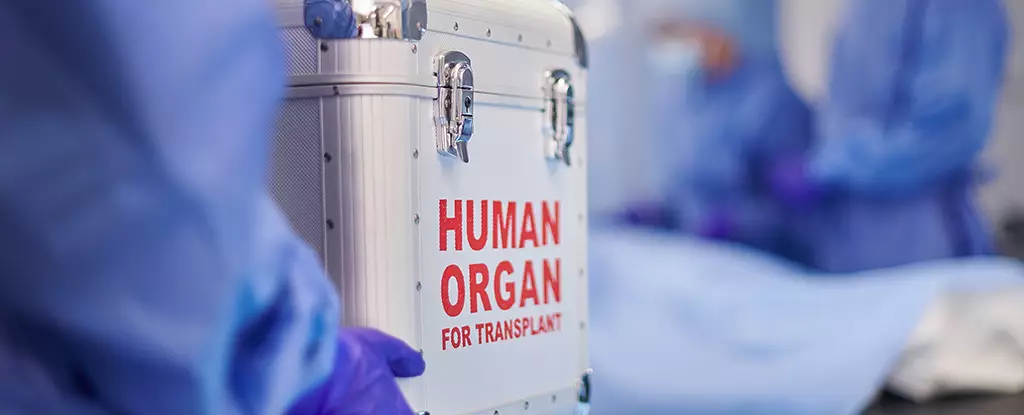The process of organ donation, a vital life-saving mechanism for countless patients, has recently come under scrutiny following a harrowing incident in Kentucky. A case involving a man who appeared to regain consciousness just moments before his organs were set to be harvested has ignited a fierce debate about the protocols surrounding the determination of death in the United States. The story centers around a 36-year-old man named Anthony Thomas ‘TJ’ Hoover II, who was declared brain dead after suffering a drug overdose and cardiac arrest. However, events unfolded during the organ procurement process that many are now questioning, raising serious ethical concerns about existing medical practices.
The Disturbing Incident
According to whistleblower Nyckoletta Martin, who was an organ preservationist at Kentucky Organ Donor Affiliates (KODA), she reviewed documentation of a surgical procedure that revealed alarming details. The report indicated that TJ had exhibited signs of life during a clinical test conducted to assess his heart viability for transplantation. Martin recounted a terrifying scene where TJ was not only moving but also visibly distressed on the operating table. “The donor had woken up during his procedure… and he was thrashing around on the table,” she stated in an NPR interview.
This disturbing revelation raises significant questions about the criteria used to declare brain death and the protocols followed when a patient is prepared for organ donation. The initial declaration of brain death, a vital prerequisite for organ donation, rests on whether the patient exhibits irreversible cessation of all brain functions. However, life signs during the procedure suggest that the situation was not as clear-cut.
This distressing situation was compounded by the accounts from TJ’s family, who were present during the incident. Donna Rhorer, TJ’s sister, recalled witnessing him opening his eyes and making movements, only to be told by medical staff that these reactions were normal reflexes. It wasn’t until he displayed more significant reactions, along with emotional responses like crying, that chaos ensued in the operating room. Surgeons were understandably shaken, and the lead surgeon decided to halt the procedure, expressing discomfort with moving forward with organ harvesting.
This emotional turbulence illustrates the human element often overshadowed by clinical processes in medical practice. The situation serves as a reminder of the profound impact of such decisions not just on the patients but also on their families who are navigating their grief in real time.
Protocols Under Review
The incident is currently under investigation by the federal Health Resources and Services Administration, which suggests that protocols surrounding death determination and organ donation may require reevaluation. In a statement responding to the event, KODA maintained that protocols were followed according to established guidelines. They indicated that patients who show improvement or do not experience anticipated cardiac arrest are not eligible for organ donation. This raises further questions about the accuracy of assessments made at critical moments, underscoring the necessity for stringent checks and balances.
The ethical implications of this case cannot be overstated. The question of how to balance the urgency of organ procurement against the immutable principles of medical ethics is paramount. The fear of being alive but unable to communicate during surgery, as Nyckoletta Martin poignantly articulated, represents what many perceive as “everyone’s worst nightmare.” Such fears can lead to a decline in public confidence in the organ donation system, potentially deterring individuals from registering as donors.
Organ transplantation is a lifesaving procedure that has successfully contributed to the recovery of thousands. Yet, the procedural flaws highlighted by this incident call for profound introspection within the organ donation community. More than 46,000 organ transplants were performed last year in the U.S., yet over 100,000 patients are still on waiting lists. Addressing the complexities surrounding consent, transparency, and procedural integrity in the donation process is essential to cultivate a system built on trust and ethical compliance.
Moving forward, the integrity of the organ donation process must be safeguarded through innovative reforms, enhanced training for medical personnel, and a comprehensive review of existing protocols. It is crucial that the medical community learns from such incidents to ensure they remain rare, thereby protecting not just potential organ recipients but also the dignity of all individuals involved in the donation process. The hope is that through accountability and reform, the tragic circuity of this incident can lead to a more reliable and humane organ donation system for the future.


Leave a Reply